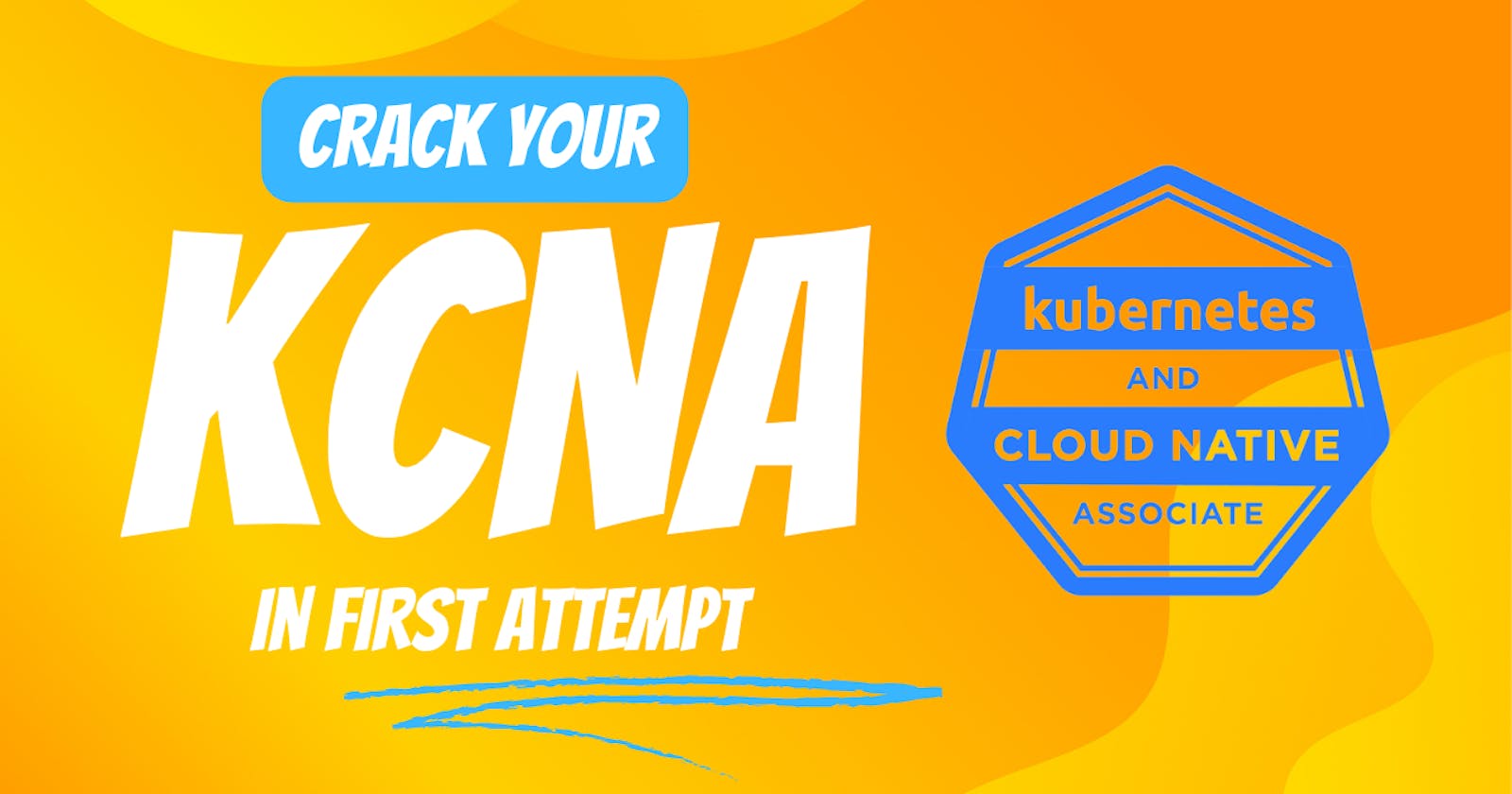How I cleared my Kubernetes and Cloud Native Associate (KCNA) exam in first attempt.
Hello everyone! A while back I passed my first cloud certification in the first attempt. To be honest I was super nervous putting all my knowledge at an official test. But in the end, it played out well. In this blog, I will introduce you to the certification (If you are unaware of the certification or want to know more about it) and then share the tips and resources that I followed to clear this exam on the very first attempt.

What and Why of KCNA?
KCNA stands for Kubernetes and Cloud Native Associate exam. This exam is facilitated by CNCF (Cloud Native Computing Foundation) as a part of Linux Foundation training. As the name suggests this certification revolves around testing your knowledge in Kubernetes and cloud-native. This certification confirms the user's knowledge about Kubernetes as a technology and the cloud native ecosystem as a whole. This certification is categorized as pre-professional certification and aims to help to provide a robust foundation for the professional cloud journey for the person.
This certification validates a candidate's fundamental understanding of Kubernetes and cloud-native technologies. It encompasses various areas such as deploying applications using essential Kubectl commands, comprehending the architecture of Kubernetes (including containers, pods, nodes, and clusters), grasping the cloud-native landscape and associated projects (such as storage, networking, GitOps, and service mesh), as well as understanding the principles of cloud-native security. Completing the KCNA exam demonstrates a candidate's proficiency in these key areas.
So from this, I hope you are not able to get a clear vision of how one getting this certification can help someone validate their cloud-native and Kubernetes skills and get those opportunities in the cloud-native ecosystem. Now that we know about the intent of the certification we can move forward with more details of the certification.
Though the exam costs $250 now. You can always get good deals on sales and even free sometimes through programs like LiFT scholarships etc. It would help if you kept an eye on it.
Uniqueness of KCNA Exam:
Some factors make this exam unique. One among them is strict proctoring during the exam. You can read more about it on this page. Although every exam taker is abided by the confidentiality agreement I will only able to share the resources, and information that are disclosed to the public. The certification is valid for 3 years.
Curriculum of the Exam:
The curriculum of the exam is very nicely constructed by giving appropriate importance to the appropriate modules and introducing almost all the cloud native concepts. The curriculum equally weighs upon the theory of things and practical implementation of the subject. So if you have a practical application with your theoretical study this exam might become relatively easy for you. This exam is MCQ-based and a total of 60 MCQs are asked in the exam. To pass the exam you have to attain a 75% result. The exam should be completed in 90 mins
The curriculum consists of the following components (The detailed curriculum can be found here. Kindly check for/if any revisions to the curriculum)
Kubernetes Fundamentals (46%)
Container Orchestration (22%)
Cloud Native Architecture (16%)
Cloud Native Observability (8%)
Cloud Native Application Delivery (8%)
Resources for the Exam
Now that we know about the exam and the curriculum. It's time to share with you the resources I followed to prepare for the exam. I have also made my notes public so you can use them for reference, study, or quick revision (recommended). The external resources could be
https://www.exampro.co/kcna - Free lectures and 1 free practice test
https://github.com/moabukar/Kubernetes-and-Cloud-Native-Associate-KCNA
https://blog.bradmccoy.io/how-to-pass-your-kcna-exam-cf98cfa7d70f
Tips for the Exam
These are some of my tips while you prepare for your exams
Try to get as much hands-on practice as you can. Learned a new concept? Try to implement at least the Kubernetes one. Create pods, deployments and play around with it.
Give yourself enough time to understand. This is a very conceptual technology and understanding how everything works with each other.
Try to deep dive. Although the resources seem simple overviews try to learn a bit deeper into the concept. This will help you during exams as well as with other concepts.
Try to solve as many mock exams as you can. Multiple websites help you with sample questions. Take advantage of them.
Believe in your preparation. You got this 💪
Conclusion
Well, that's it for this blog, In the upcoming blogs I will try to pick up the topics from the curriculum and make them easier for you. Do join CNCF and Kubernetes communities to receive help during your preparation. You can also join my discord community and I would be happy to help you with your preparation. See you in the next blog 👋
Thank you so much for reading 💖
Connect: https://link.kaiwalyakoparkar.com/

